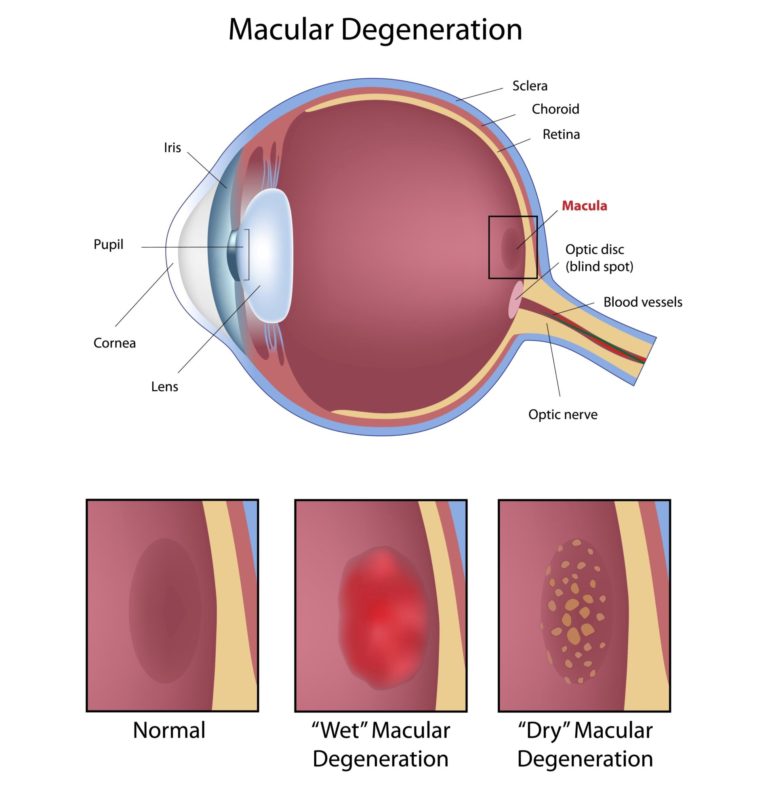Age-Related Macular Degeneration

The macula is the center part of the retina, the part responsible for our reading vision and for the ability of our eye to see clear details. Macular degeneration is a condition that occurs with increasing age in which the macula begins to deteriorate. Patients may notice distorted vision, missing spots in their vision, and blurred vision. The most common type of macular degeneration is the “dry” type, where the macular cells begin to degenerate and not work as well. However, some cases of macular degeneration convert to the “wet” type, which is caused by abnormal blood vessels leaking either fluid or blood under the retina. In recent years, there have been dramatic changes in the treatment of macular degeneration. Relatively new drugs, including Avastin, Eylea, and Lucentis have improved the prognosis for many patients with new wet macular degeneration. Treatment can often be effective in limiting the rate of further vision loss, and sometimes in improving vision.
For more information, visit the American Academy of Ophthalmology Eye Health resources at: https://www.aao.org/eye-health/diseases/amd-macular-degeneration
